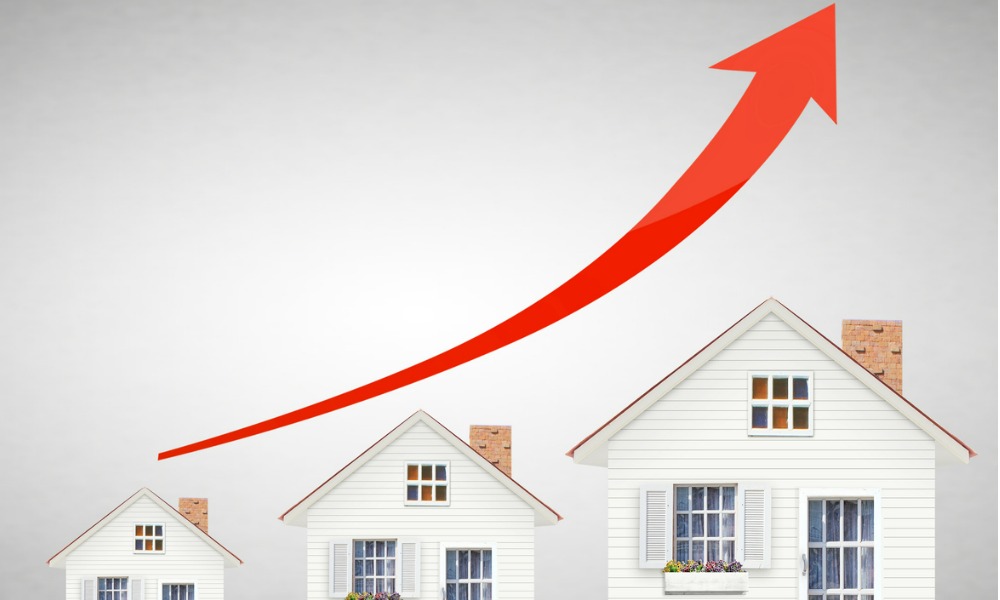But rosy report also notes some borrowers could fall underwater next year

It’s one thing to sense huge equity gains for homeowners amid a surge in refinancing, but it’s quite another to see the actual number. According to analysts at CoreLogic, US homeowners with mortgages – representing some 63% of all properties – amassed collective gains of $3.2 trillion in the third quarter alone.
The findings are contained in CoreLogic’s Homeowner Equity Report, which shows a 31.1% increase from last year’s comparable period. The amount represents an average gain of $56,700 per homeowner since the third quarter of 2020, according to the report.
Such gains will be especially useful in funding renovation projects for homeowners, analysts noted in the report. The windfall will also ease some homeowners’ transition out of forbearance that allowed for moratoriums on mortgage payments to guard against the corrosive economic effects of the pandemic. In essence, analysts suggested, equity gains have helped stave off mass foreclosures.
Frank Nothaft, chief economist for CoreLogic, attributed home price growth as the principal driver of home equity creation. According to the report, home prices were up 17.7% for the past 12 months ending in September. Price growth has proven to be the fuel spurring record gains in home equity wealth, the economist added.
The latest data shows steadily increasing equity growth from previous reports.
The Q1 report showed an equity increase of 19.6% year over year, representing a collective equity gain of more than $1.9 trillion. The average gain then was $33,400 per borrower in the 2020 comparable period.
The upward trend was seen in this year’s second quarter, when the nation’s homeowners saw a 29.3% increase in equity gains to $2.9 trillion. The average gain was $51,500 per borrower, the previous report indicated.
The gains are hardly surprising in light of robust home price growth, Selma Hepp, CoreLogic’s deputy chief economist, told Mortgage Professional America.
“The tremendous gains in equity we’ve seen over the last year are not surprising given home price growth has surpassed 20% in some regions in the same timeframe,” Hepp said. “While considerable home price growth has not been favorable for first-time homebuyers, or buyers with budget constraints, it has created wealth stability for existing homeowners.”
To achieve its findings, CoreLogic surveyed more than 3,000 consumers to check the pulse of the housing market.
Yet amid the rosy assessment, analysts warn of potential negative equity should home prices take a modest dive next year. Because home equity is affected by home price changes, analysts explained, borrowers with equity positions near (+/-5%) the negative equity cut-off are most likely to move out of or into negative equity as prices change, respectively. Stated another way: “If home prices increase by 5%, 145,000 homes would regain equity; if home prices decline by 5%, 191,000 would fall underwater.”



